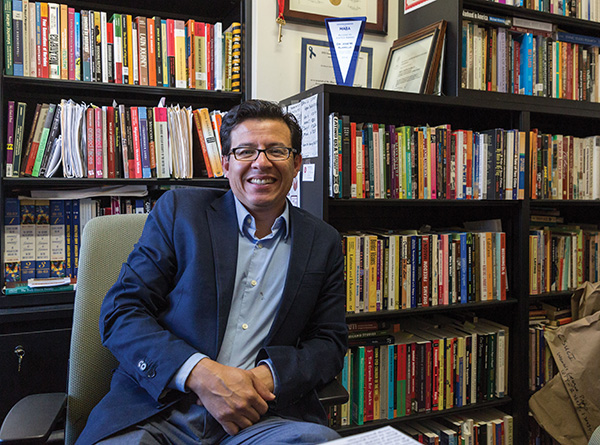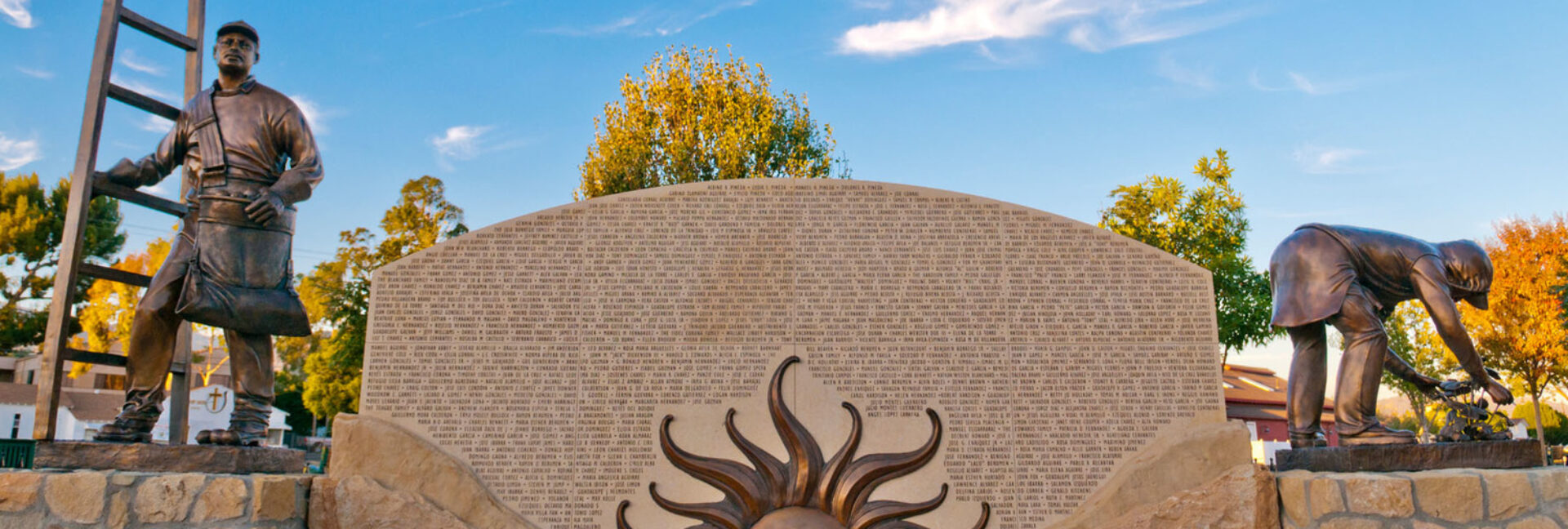 Dr. José M. Alamillo
Dr. José M. Alamillo
Professor & Chairperson
Chicana/o Studies Department
CSU Channel Islands
One University Drive
Camarillo, CA 93012
Office: Madera Hall 1366
Office Phone: 805-437-2685
Cell Phone: 805-312-3182
Email: jose.alamillo@csuci.edu
Education
Ph.D., Comparative Cultures, University of California, Irvine
M.A., Comparative Cultures, University of California, Irvine
B.A., Sociology and Communication, University of California, Santa Barbara
Biography
Dr. Alamillo was born in Zacatecas, Mexico and raised in Ventura County, California. His family worked in the year-round lemon industry which allowed him to attend local public schools uninterrupted. At middle school age, he took part in the University of California, Santa Barbara’s Educational Opportunity Program (EOP) and earned B.A. degrees in Sociology and Communication at UCSB. He earned his M.A. and Ph.D. in Comparative Cultures at University of California, Irvine. After completing a postdoctoral fellowship at the University of California, Los Angeles’ Chicano Studies Research Center, he taught courses in Chicano/a Studies, Ethnic Studies, Immigration and Labor for nine years in the Department of Comparative Ethnic Studies at Washington State University (Pullman, WA).
Research
Dr. Alamillo’s research focuses on the ways Mexican immigrants and Mexican Americans have used culture, leisure, and sports to build community and social networks to advance politically and economically in the United States. His family’s experiences in the lemon industry inspired his first book, Making Lemonade out of Lemons: Mexican American Labor and Leisure in a California Town, 1900-1960. He co-authored the first textbook on Latinos in Sport, Latinos in U.S Sport: A History of Isolation, Cultural Identity, and Acceptance and the book, Mexican American Baseball in Ventura County. He recently published, Deportes: The Making of a Sporting Mexican Diaspora with Rutgers University Press. He is currently working on two research projects: (1)“Dark Waters: Floods, Ethnic Mexicans and the Politics of Disaster Relief along the U.S.-Mexico Borderlands.” This book will examine the relationship between disaster relief organizations and ethnic Mexican communities in the aftermath of flood disasters in southern California, Arizona, Colorado and Texas. (2) “Untold Legacies: Re-Interpreting Ventura County History through an Ethnic Studies Lens.” This edited book will bring together scholarly essays, testimonios, and creative expressions that center that center subjugated histories and knowledges of racially minoritized communities in Ventura County.
Teaching
Dr. Alamillo’s teaching includes courses with an interdisciplinary, transborder, international, and community service learning focus. Below is a select list of courses he teaches:
- CHS 331 Transborder Perspectives in Chicana/o Studies
- CHS 350 Chicana/o History and Culture
- CHS 200 Diversity in Latina/o Communities
- CHS 491 Theoretical Foundations in Chicana/o Studies
- CHS 425 Contemporary Immigration Issues
Community Service Learning
Dr. Alamillo has involved students in community service learning projects.
In 2008, CI students became involved with the Smithsonian Institution’s National Museum of American History to document the Bracero experience. CHS created courses (CHS 292 and CHS 499) that focused on the Bracero Oral History Project (BOHP) in which students conducted oral history interviews and collected dozens of photographs, documents, and artifacts that tell the story of the largest guest-worker program in U.S. history. Overall, students conducted over 80 oral history interviews with ex-Braceros and their families, researched local newspapers and archives, scanned photographs, organized town-hall meetings, and designed an exhibition,“The Braceros of Ventura County” that opened to the public from Sept. 9 to Oct. 31, 2010. Students in CHS 499 were trained as docents to conduct exhibit tours to high school classes, community groups, and family members. CHS students also created social studies curriculum to teach about the Bracero Program at Pacifica High School in Oxnard. In spring 2013, CHS 499 students worked with a community partner (Cabrillo Economic Dev. Corp) to design an exhibition at the Valle Naranjal farmworker housing complex in Piru, CA. Students were trained by the Center for Oral and Public History at CSU Fullerton to edit and publish transcripts of the bracero interviews. Students also created a digital archive at the CI Broome Library. The main goal was to create a digital repository in the Broome Library that would help researchers and K-16 educators to teach the Bracero experience in Ventura County.
In Spring 2016, CI students participated in a community collecting initiative titled Latinos and Baseball: In the Barrios and the Big Leagues, sponsored by the Smithsonian’s Latino Initiatives and the National Museum of American History, focusing on the historic role that baseball has played as a social and cultural force within Latino/a communities. Students partnered with CSU San Bernardino and LA Plaza de Cultura y Artes in this collecting initiative, by conducting oral history interviews of former players, collecting memorabilia and photographs, and writing blogs. A former student, who participated in a similar Latino baseball project in spring 2015, continued his involvement beyond graduation because he believed in the importance of this recovery project. This student became the co-author of the book, Mexican American Baseball in Ventura County.
Study Abroad
Dr. Alamillo has involved students in faculty-led trips to Cuba. Students enrolled in CHS 490 (Cuban History, Culture and Politics) in spring 2013 semester spent a week in Havana, Cuba visiting cultural centers, museums, community projects, historical landmarks, and interacting informally with everyday Cubans during free time. The learning objectives were closely linked to the activities because students were able to interact with experts in the fields of arts, politics, culture, history, economics, Afro-Cuban religion, health care, and U.S.-Cuba relations.

